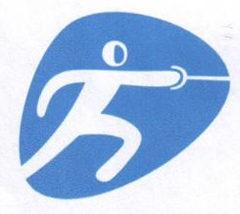SAO PAULO: Without a national delegation, an Olympic scholarship or even an international ranking, Kuwait's first fencer at the Games in 16 years knows the odds are stacked against him. But Abdulaziz Alshatti has beat long odds before, including the stunning first place finish at a qualifying event this year that punched his ticket to Rio de Janeiro. The Kuwaiti rattled off a string of upsets in that April tournament, starting with a second-round win over Kazakhstan's Elmir Alimzhanov, who placed 11th in London four years ago.
Even after going up 10-5 in three minutes - a blistering start for the cautious epee that he fences - Alshatti kept calm, he said, shutting out the noisy throng that gathered to watch. "For me to fence well I have to be very calm. If I play too angry, I'll lose," said the 25-year-old. "My coach always says, 'You need to get angry,' but I hate to be aggressive. And I reached the Olympics because I know how to keep calm."
If he were more anxious, there would be plenty to worry him. The International Olympic Committee (IOC) banned Kuwait from the Games last year due to sports legislation creating "undue government interference" in the Kuwait Olympic Committee. The ban, upheld by a Swiss court on Tuesday, means the country's Olympic committee, and consequently its athletes, are not eligible for any funding from the IOC.
Alshatti and eight fellow Kuwaitis eligible for the Rio Games are still free to participate but they will compete under the Olympic flag. Organizers have told him not to wear the attire he brought with Kuwaiti flags and other insignia. "I have to respect their rules. I'm not here to make trouble," he said. "I play by the rules of my sport and let them worry about their rules." Coming out of nowhere brings some advantages, Alshatti said, given that no one has had time to scout his strategy and style. "For all the others, I can go on YouTube and see how they play. For me they won't find any videos," he said with a grin. - Reuters











